The Biggest Cause of Iron Deficiency
Iron deficiency is endemic today especially among women of childbearing age and children. I see it in the clinic all too often and it can have disastrous consequences:
In children: poor growth, poor immune function, fatigue, headaches, mood issues including uncontrollable tantrums, poor sleep, low thyroid function
In women: hair loss, heavy periods, slow thyroid function (so common!), cold hands and feet, fatigue, shortness of breath, headaches, restless legs, swelling of tongue and mouth, pregnancy complications, and others. Chewing ice (pica) is a common sign.
I’ve discussed in detail the many and varied causes or iron deficiency in my blog HERE.
Today we are focusing on the most common cause I see in the clinic: low levels of hydrochloric acid in the stomach.
Most people know that iron is a vital mineral for our survival. It’s required for oxygenation, energy production and DNA synthesis. Rather important functions!
However, I find in clinic that there is a large number of people who are living with undiagnosed iron deficiency anaemia that is driving a lot of their underlying health issues and is often un-addressed.
A huge reason why this is happening is their inability to break down protein and absorb the iron from it due to hypochlorhydria – low levels of hydrochloric acid (HcL).
Let’s start with what are actually optimal iron levels on blood tests?
Hint: they are very different to what most doctors describe as ‘perfectly normal/nothing wrong’. Most only look at ferritin levels and ignore the rest.
Transferrin: the iron transporter, the ‘taxi’ that drives the iron around the body. Reflects how much iron your body needs.
Optimal Transferrin levels for children and women are 2-2.5 (mmol/L)
Transferrin Saturation %: the number of ‘passengers’ in the iron taxis. How well is the iron being delivered in the body.
Optimal Saturation: 20-30%. A % transferrin saturation of 15% or below is a classic finding in iron deficiency anemia.
Ferritin: the iron storage in the liver. The reserves. The most sensitive screening test for iron deficiency, because in most situations the body will sacrifice the reserves to keep the serum levels or iron optimal.
Optimal Ferritin levels are 30-100.
I find clinically that when women’s levels of Ferritin drop below 60-70, they often start experiencing low thyroid symptoms such as hair loss.
Now that we understand what the optimal levels should be, let’s look at WHY they are so often low.

The biggest cause of iron deficiency is low stomach acid (hydrochloric acid or HcL).
As simple as that. When HcL levels fall low, it becomes very challenging for the body to digest protein, particularly animal protein, thereby compromising iron absorption (as well as B12 and zinc in particular).
Often, people with low stomach acid will complain of:
- ‘the food feels like it’s just sitting there for hours’,
- ‘meat feels like a brick in the stomach’
- ‘I feel sick when I eat meat’
- ‘I’m not hungry in the mornings at all’
- ‘I often burp in the morning before I’ve had any food or water’
- ‘I have so much bloating and gas’
- ‘I think I have reflux’ or ‘too much acid’ and ‘often take an over-the-counter antacid for relief’.
Oftentimes, the HcL deficiencies are made worse by a PPI prescriptions for symptoms such as indigestion and reflux which commonly accompany LOW stomach acid.
The PPI then further reduces HCL, people are often on it for years and their iron malabsorption is continuous. PPIs have recently been linked with gastric cancer. They are supposed to be prescribed for very short term duration treatment, however people are staying on them for decades with very severe consequences. The longer the PPI use, the stronger the cancer risk.
If you are interested in the links between PPIs and cancer, read THIS and THIS.
Why is low stomach acid a problem?
Common symptoms of low stomach acid include:
- heartburn
- reflux
- constipation
- diarrhoea
- food malabsorption
- parasite infections
- yeast overgrowth (candida).
Basically it impacts every aspect of our digestion both ‘upwards’ (into the oesophagus) and ‘downwards’ into the intestine and the colon.
SIBO and IBS both start with low stomach acid which impacts bacterial overgrowth and reduces motility of the gastrointestinal tract. More on this here.
Without adequate HcL it is extremely difficult to have optimal iron levels.
What causes low HcL?
- Stress. This is by far the biggest reason I see in clinic. Long term physical or emotional stress will drive down hydrochloric acid levels and compromise protein digestion and iron absorption. Why? Because when you are constantly being chased by a sabre tooth tigre (aka: your boss or financial troubles) your body will de-prioritise digestive function in favour of pumping blood into the muscles so you can fight or run away from the tiger. For many people, this happens 50 times on a daily basis, all on the way to work in traffic.
- Helicobacter Pylori (H. Pylori) infection. This is a very common bacteria that will proliferate in a low acid environment and lower the acid even further.
- Proton pump inhibitors (PPIs) as above
- Genetics: I am seeing babies and small kids with low levels of hydrochloric acid, which shows up as compromised digestion (terrible, messy and smelly poos in the nappy often with bits of undigested food). I believe this is due to inheriting extremely low levels of zinc and vitamin B6 from the mother, who often has Pyroluria. Without adequate zinc and B6 to make the acid, they are not digesting protein well enough to have optimal iron levels. I am seeing a large number of anaemic children who are often tired, throw regular tantrums and have trouble concentrating.
- Zinc, B6, B1 deficiency. In addition to the above with zinc and B6 being very low in people with Pyrolles, B1 deficiency is also very common, particularly in alcoholism. People who regularly consume more than 1 standard drink per day will have a strong tendency to low stomach acid often due to this.
- Long term vegan and vegetarian diets– lack of zinc on these diets depletes HcL. Also a lack of animal protein will downregilate HcL- it’s simply not needed in big quantities to digest a low protein diet, so the body will reduce its production. Sadly, a large number of vegan/vego dieters are iron deficient and often a supplement is not enough.
- Self prescribed Long term zinc supplementation in pyrolle disorder without checking iron levels regularly. This happens a lot. All nutrient supplementation should be monitored by a health professional and not self-prescribed.
How to easily find out if you have a low level of Hydrochloric acid?
In the most common blood test requested by GPs, ‘Biochemistry’ (or sometimes called ‘Serum chemistry’) you will see a line called Bicarbonate. This is a very good indicator of HcL. If your level is consistently below 27-28, you will have a low level of stomach acid, very likely a low level of protein and a low level of iron.
My bicarbonate level was hovering at 22 for years before I solved this mystery (after becoming a nutritionist:) and began addressing the issue.

Easy digestive remedy
How to address iron deficiency and low stomach acid:
- This is VERY important– discuss your iron deficiency with your medical provider and rule out any significant medical causes: internal bleeding is a major issue. This can happen from gastric ulcers, fibroids, endometriosis and other conditions. An obvious condition such as this can be a constant drain on your iron stores.
- Equally as important: rule out coeliac disease or other gut related malabsorption issues such as Crohn’s or IBd. Iron deficiency due to coeliac or malabsorption is very common. I actually find it scary that I am able to identify undiagnosed Crohn’s or other bowel disorders on routine fuctional stool testing where the person has been dismissed with ‘oh you just have IBS’ or ‘its all in your head’ previously.
- Rule out Helicobacter pylori infection– this is a common gastric bacteria that can only survive in a low stomach acid environment. If you have H.Pylori it will be pretty much impossible to successfully absorb iron (as well as zinc and B12 and other nutrients). I am finding that conventional tests for h.pylori often show a false negative result and require higher level testing for different strains of the bacteria that I use in clinic to identify an infection and treat it. Often people have symptoms (reflux, food feels like a brick in stomach, burping, indigestion, etc) without a diagnosis
- Ensure you have optimal sodium levels. We have been brainwashed to limit salt intake. I find that the vast majority of people actually have extremely low sodium levels which compromises their stomach acid production (salt is an essential ingredient to make the acid). Low sodium will also be very common in adrenal fatigue and low blood pressure. The best way to test sodium (and all other mineral levels) is via Hair Analysis.
- Eat plenty of lean animal protein foods. Game meats are what we are most genetically attuned with. Animal protein, particularly red meat are fundamental to ensure iron levels are optimised. Optimal animal protein is grass fed and/or organic, buy the best you can afford. Read more about getting your meat right HERE
- Eat organ meats such as liver (must be organic) are incredibly rich in all nutrients including iron. 1-2 times a week is great
- Eat plenty of natural sources of vitamin C. Capsicums, kiwi fruit, berries, plums, but basically many fruits and vegetables are rich sources. If you eat these with your meat there is optimised synergy for iron absorption. Ascorbic acid supplements are a poor source of vitamin C as they do not include the whole vitaminC molecule and can compromise absorption of other minerals such as copper.
- Do NOT over exercise! Especially if your iron numbers are well below the optimal ranges above. Often I see women flogging themselves with cross fit classes 6 days a week or running endless kilometres- all in the name of weight loss- using up their precious iron stores and compromising their thyroid function. The biggest key to weight loss is to optimise thyroid function, HcL and regulate the metabolism
- Eat slowly, chew well. This is almost completely gone from our culture- we eat in the car, whilst walking, standing, being stressed, in front of our computer/phone, etc. Eating in a calm space, sitting and chewing is very important to optimal HcL levels.
- This simple digestive remedy often helps improve acidity, however I find often supplementation is required for some time
- Appropriate supplementation is essential if your iron levels are already low. Most chemist iron supplements are very constipating and poorly absorbed. Consult your complimentary health care provider to find supplements that will be optimal for you. Often I use personalised dose compounded pharmacy skin creams to treat long term iron deficiency in order to bypass a compromised digestive system altogether and deliver iron straight to the blood stream.
If you have continuously low iron levels and are suffering from the symptoms described above, contact me to resolve your anaemia permanently HERE.
References:
-“Blood chemistry and CBC Analysis. Clinical Laboratory Testing from a Functional Perspective”, 2002, Weatherby, D. (N.D) and Ferguson, S. (N.D), Bear Mountain Publishing

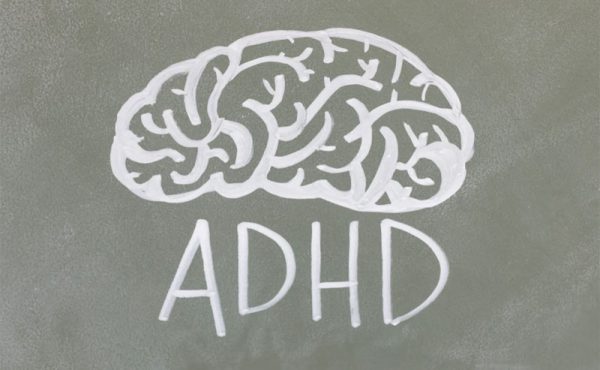
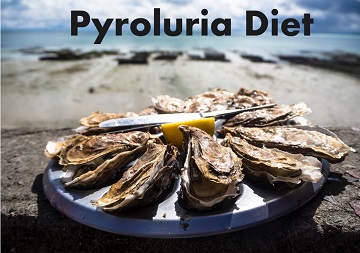
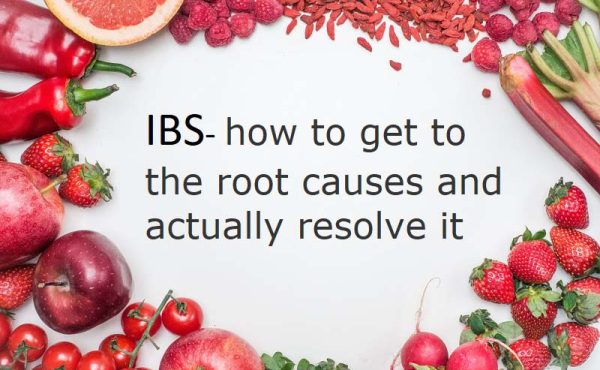



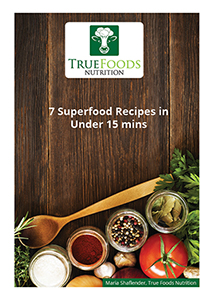
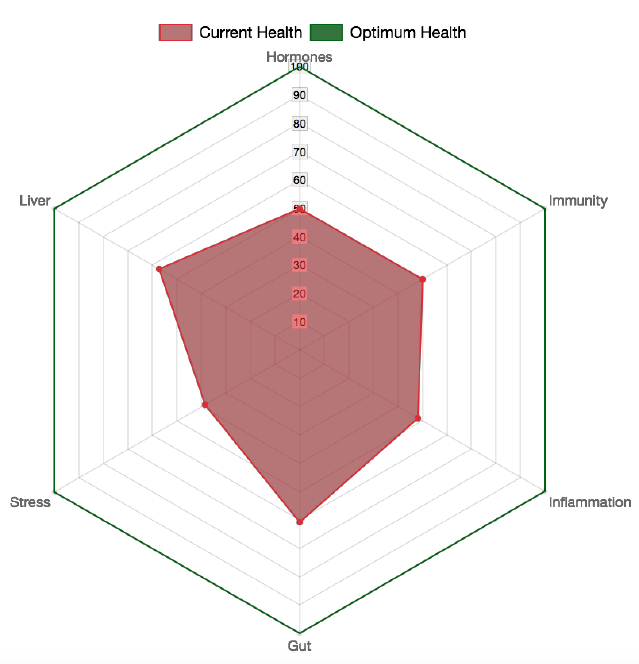


Maria, this was such a helpful article. Thank you! I’ve been taking Betaine HCL with pepsin for months now with my meals. Ferritin is apparently still low even on a carnivore diet with regular consumption of liver. I tick just about every low thyroid symptom except my heart rate isn’t slow, it’s accelerated. Is there any point in me taking liposomol iron capsules and liposomol vitamin C drops, or are they both useless without adequate stomach acid?
Hi Isla, thanks for the feedback. I recommend consulting a practitioner on my team to get to the bottom of iron absorption issues.
Hi Maria,
Thank you for a great article. I came across it in the iron deficiency fb group searching for “bloating when eating bicarb soda”. I’ve only realised after over 20 years that this is the culprit for me.
I was wondering if you had any further research that you could point me to this regarding. Every one I ask tells me that baking soda should help with digestion but it is the instant opposite for me. Many thanks.
Do you have any referrals in Canada? Thankyou!
Hi Arunyaa, I consult online anywhere in the world
Hi I am in Barcelona, Spain. I was researching online and came across your very informative article. I would like to know if it is possible to test with you from abroad? or if you are affiliated with another clinic here? I am extremely distressed with ibs + anemia and the regular doctors don’t help at all. Any referral you could give would be much appreciated! Thank you.
Hi Tanya,
Sorry I currently don’t work with EU clients due to time difference constraints. Here is a UK nutritionist I can recommend for you: https://www.linkedin.com/in/katie-young-111b01140/?originalSubdomain=uk
Thank you, this has been such a helpful & informative article. I sit here searching for answers and I think I may have found it! I have had Years of low ferritin, currently it’s at 7 and another iron infusion booked in for this Monday. I feel like I keep trying to treat the problem not fix it. Never has any of the doctors mentioned the possibility of stomach acid being a concern. Only to ensure I’m having vitamin C.
Thank you!
Hi Maria
I found your article on iron deficiency and stomach acid really interesting! I am in a cycle of iron deficiency, my thyroid results sometimss go out of range and what I think is low stomach acid. I am having to have iron infusions about every 6 months as I cant tolerate iron tablets. Ive tried many different types. Have you had success in the past helping clients to permanently resolve these issues? I am keen to get out of this cycle!
Regards
Kate
Hi Kate, yes for sure, need to resolve the root causes. Feel free to book a consult when ready. Cheers
Hi there
Just to clarify if someone has low stomach acid does this mean that the pH is acidic or basic? I’m assuming low acid means a higher pH?
correct, more alkaline so higher pH